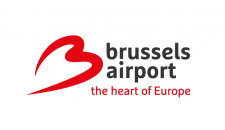Traffic results for first semester of 2013
1.8 million pax in June & positive growth for the first semester
Passengers
In June Brussels Airport welcomed over 1.8 million passengers. Home carriers Brussels Airlines, Thomas Cook Airlines and Jetairfly each recorded strong growth. Brussels Airlines is strengthening its position in the long-haul segment due to its Africa network and the success of its route to New York which celebrated its first anniversary in June. Brussels Airlines added a second trans-Atlantic route to its network: since June they are also operating flights to Washington DC. Growth was also recorded in the short-haul segment.
Leisure and low fare also performed well. Jetairfly and Thomas Cook Airlines reported nice growth rates. In spite of the economic uncertainty, Belgians continue to travel to sunnier destinations. Greece and Spain are the fastest growing destinations. At the end of June Thomas Cook Airlines launched new routes to Reykjavik and Bastia and as of November Jetairfly will start operating direct flights to Ras al-Khaimah. In de low-fare segment growth is driven mainly by the new routes to Alicante and Malaga operated by Vueling.
Movements
The number of aircraft movements decreased by 3.4% in June in spite of the growth in passenger numbers. This is largely attributed to the improved load factor of the planes.
Cargo
Cargo traffic was down by nearly 12% on the previous corresponding period. The strong decline of world air cargo traffic manifests itself at Brussels Airport through a decline of the volumes carried on passenger and full-freighter flights. This is partly compensated by the ongoing strong growth of cargo volumes carried on integrator flights (+7%). But there’s good news too. In the beginning of June Singapore Airlines launched a weekly, direct service to South-Africa and Magma Aviation started a new route to Lomé. These two new routes strengthen Brussels Airport’s position on the African market.
First semester
In the first six months of the year Brussels Airport recorded a slight growth of 0.4%, a good result considering the ongoing economic uncertainty. New routes and improved load factors contribute to positive traffic figures in the short-haul and leisure segments. In the long-haul segment a decrease was reported that can be attributed to the discontinuation of Chennai-JFK route via Brussels Airport and the fact that American Airlines stopped its activities at Brussels. If we leave out these factors, long haul is showing positive growth.
In the cargo segment a decrease of nearly 12.8% was recorded. Traditionally, air cargo is the first segment to suffer from an economic recession. Brussels Airport has been hit harder by the crisis than other European airports. The major cause of this is the discrepancy between the federal legislation with regard to flight routes and the noise standards imposed on a regional level. Foreign carriers that wish to avoid the fines more often choose to operate from airports in our neighbouring countries. Especially when it comes to cargo traffic, this compromises the ambitions of Brussels Airport. Moreover, each choice for a foreign airport is a missed opportunity for employment in Belgium.


